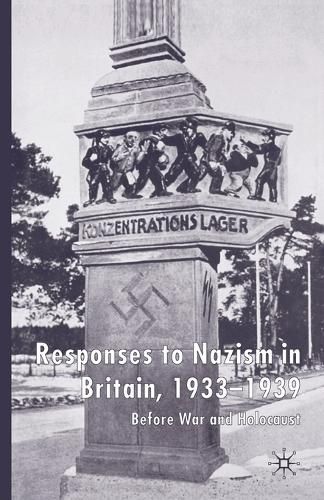Readings Newsletter
Become a Readings Member to make your shopping experience even easier.
Sign in or sign up for free!
You’re not far away from qualifying for FREE standard shipping within Australia
You’ve qualified for FREE standard shipping within Australia
The cart is loading…






This title is printed to order. This book may have been self-published. If so, we cannot guarantee the quality of the content. In the main most books will have gone through the editing process however some may not. We therefore suggest that you be aware of this before ordering this book. If in doubt check either the author or publisher’s details as we are unable to accept any returns unless they are faulty. Please contact us if you have any questions.
This book examines the large and previously-neglected body of literature on Nazism that was produced in the years 1933-1939. Shifting attention away from high politics or appeasement, it reveals that a remarkably wide range of responses was available to the reading public. From sophisticated philosophical analyzes of Nazism to pro-Nazi apologies, the book shows how Nazism informed debates over culture and politics in Britain, and how before the war and the Holocaust made Nazism anathema it was often discussed in ways that seem surprising today.
$9.00 standard shipping within Australia
FREE standard shipping within Australia for orders over $100.00
Express & International shipping calculated at checkout
This title is printed to order. This book may have been self-published. If so, we cannot guarantee the quality of the content. In the main most books will have gone through the editing process however some may not. We therefore suggest that you be aware of this before ordering this book. If in doubt check either the author or publisher’s details as we are unable to accept any returns unless they are faulty. Please contact us if you have any questions.
This book examines the large and previously-neglected body of literature on Nazism that was produced in the years 1933-1939. Shifting attention away from high politics or appeasement, it reveals that a remarkably wide range of responses was available to the reading public. From sophisticated philosophical analyzes of Nazism to pro-Nazi apologies, the book shows how Nazism informed debates over culture and politics in Britain, and how before the war and the Holocaust made Nazism anathema it was often discussed in ways that seem surprising today.